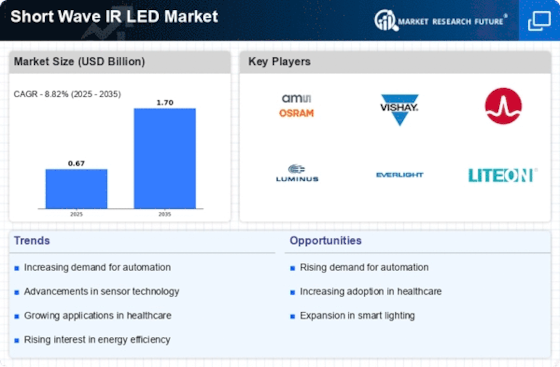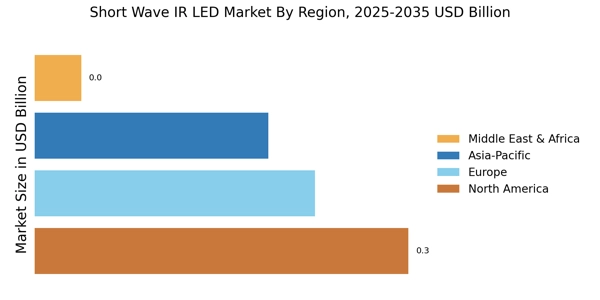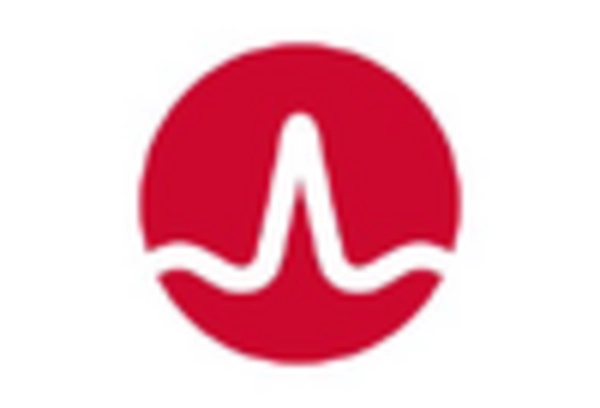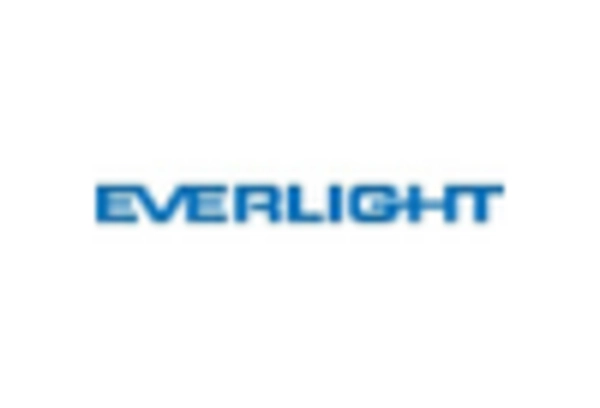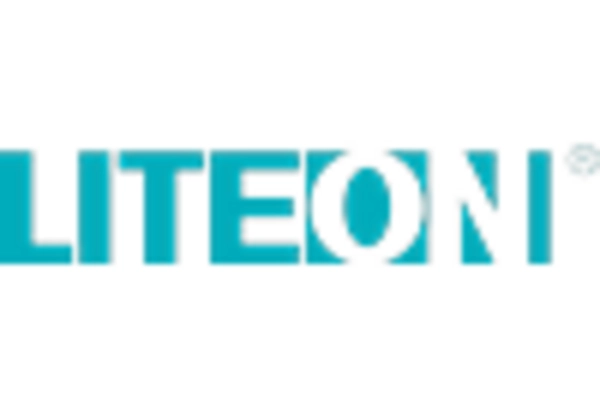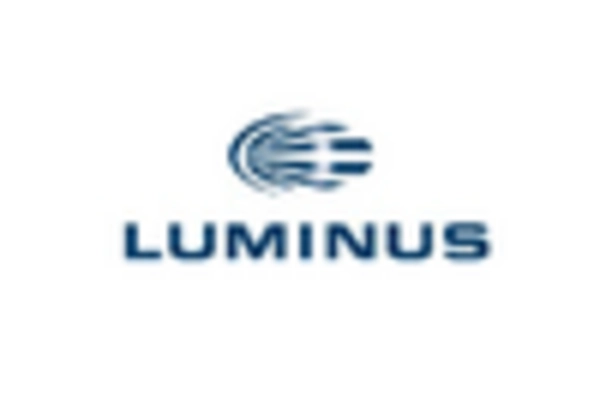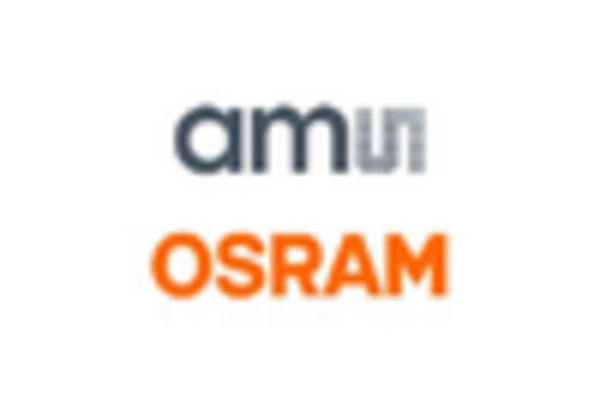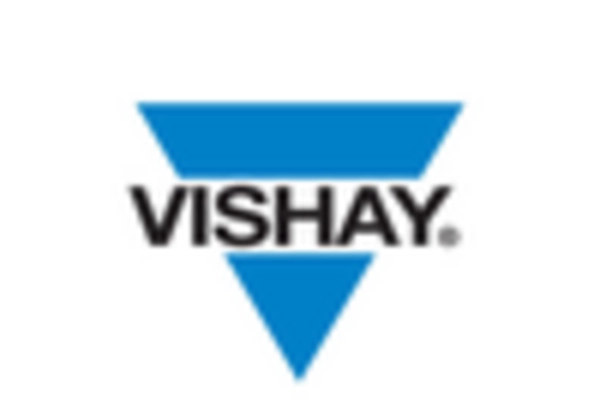Emerging Applications in Medical Imaging
The medical sector is witnessing a surge in the adoption of advanced imaging technologies, which serves as a crucial driver for the Short Wave IR LED Market. Short wave IR LEDs are increasingly utilized in medical imaging applications, such as phototherapy and diagnostic imaging, due to their ability to provide high-quality illumination. The medical imaging market is projected to grow significantly, with estimates suggesting a value of over USD 40 billion by 2025. This growth is likely to enhance the demand for short wave IR LEDs, as healthcare providers seek to improve diagnostic capabilities and patient outcomes. Consequently, the Short Wave IR LED Market is expected to benefit from these emerging applications in the medical field.
Increased Focus on Smart Home Technologies
The trend towards smart home technologies is significantly impacting the Short Wave IR LED Market. As consumers increasingly adopt smart devices for home automation, the demand for efficient and effective lighting solutions has risen. Short wave IR LEDs are integral to various smart home applications, including security systems, smart cameras, and motion sensors. Market Research Future suggests that the smart home market is expected to exceed USD 150 billion by 2024, with a substantial portion of this growth driven by the integration of infrared lighting solutions. This trend indicates that the Short Wave IR LED Market will likely see increased investment and innovation as manufacturers respond to consumer preferences for smart home integration.
Growth in Industrial Automation and Robotics
The rise of industrial automation and robotics is emerging as a significant driver for the Short Wave IR LED Market. As industries strive for increased efficiency and productivity, the integration of infrared LEDs in automation systems is becoming more common. Short wave IR LEDs are utilized in various applications, including object detection and proximity sensing, which are critical for robotic operations. The industrial automation market is projected to grow substantially, with estimates suggesting a value of over USD 200 billion by 2025. This growth indicates a robust demand for short wave IR LEDs, as they play a crucial role in enhancing the functionality and reliability of automated systems.
Advancements in Automotive Lighting Technologies
The automotive sector is undergoing a transformation with the integration of advanced lighting technologies, which significantly influences the Short Wave IR LED Market. The adoption of short wave IR LEDs in vehicles for applications such as adaptive headlights and night vision systems is becoming increasingly prevalent. This shift is driven by consumer demand for enhanced safety features and improved visibility during nighttime driving. Market data indicates that the automotive lighting market is expected to reach USD 30 billion by 2026, with a notable portion attributed to infrared lighting solutions. Consequently, the Short Wave IR LED Market is poised to benefit from this trend as manufacturers seek to incorporate innovative lighting technologies into their vehicles.
Rising Demand for Security and Surveillance Systems
The increasing emphasis on security and surveillance systems appears to be a pivotal driver for the Short Wave IR LED Market. As urbanization accelerates, the need for advanced security solutions has surged, leading to a heightened demand for infrared lighting. Short wave IR LEDs are particularly favored for their ability to provide clear images in low-light conditions, making them essential for night vision applications. According to recent estimates, the market for security cameras is projected to grow at a compound annual growth rate of over 10% in the coming years. This trend suggests that the Short Wave IR LED Market will likely experience substantial growth as more entities invest in enhanced security measures.

